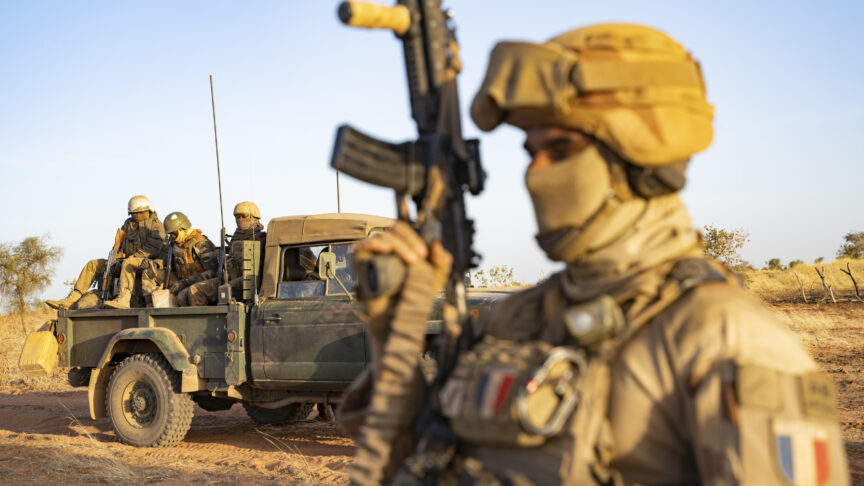India and Europe still need each other
A shift in the power balance between the EU and India has changed the two powers' attitudes to each other, but there will still be plenty to talk about at their summit this week. Concluding a free trade agreement, and greater strategic cooperation on a range of security issues, is in the interests of both.
This article first appeared on EuropeanVoice.com
This month, young Europeans are preparing for Christmas with elderly relations. Few of them really want to sit through the oldsters' rants about how they would run the world.
For many Indian officials, this Friday's EU-India Summit looks about as appealing as a holiday with their grandparents. European diplomats have a habit of lecturing their Indian counterparts on issues like human rights in Kashmir and relations with Myanmar.
The Indians concluded long ago that these lectures could be disregarded. The Europeans, they believe, are only interested in India as a trading partner. That's not an entirely bad thing – Delhi and Brussels have made progress towards signing a free-trade agreement.
A few years ago, that might have been a big boost for India. But Delhi's ambitions have expanded exponentially. In the last year, India has won recognition as – to quote Barack Obama – an “emerged” power. The EU has looked like an emaciated power, or worse.
Why should Indian policymakers deign to parlay with a bloc that appears unable to bail out its smaller members effectively? India is not yet a global creditor on the scale of China. But it's all too conscious that its future prosperity is tied to Asia, not the EU.
European governments have also alienated India with their desire to exit Afghanistan, potentially opening the way for a new wave of terrorist assaults on Delhi and Mumbai. Delhi has not yet devised a credible strategy for handling a post-NATO Afghanistan. But Indian diplomats are wryly dismissive of European support for Hamid Karzai's regime.
But India still has good reasons to pursue a stronger relationship with the EU – and vice versa. The ongoing negotiations over the free-trade agreement are both useful – improved economic ties would underpin better links on other issues – and a distraction: liquor tariffs, hardly the stuff of great-power diplomacy, are among reported obstacles.
It is not all about the price of booze – India also objects to European efforts to insert language on “sustainable development” into the free-trade agreement. While this covers environmental standards and human rights, Delhi is in no mood to take economic lessons from the EU.
Rather than get bogged down in these disputes, European and Indian officials should concentrate on a catalogue of security issues on which they have mutual concerns. These range from fighting piracy off East Africa (where both the EU and India have naval forces, but no clear channel for swapping information) to reinforcing UN peacekeeping.
Keeping the UN afloat may be a feel-good issue for both sides – most major European countries have been broadly supportive of India's bid for a permanent seat at the UN Security Council – but they have concrete and immediate joint concerns to address first.
Countering the rising threat of Islamist terrorism is one. The EU and India both face a constant terrorist threat and have extremely long and troublingly porous borders. Both worry about the potential for attacks by militants trained in Afghanistan and Pakistan – and memories of attacks on Madrid, Mumbai and London should ensure this is a priority.
Yet intelligence-sharing on these threats has primarily been at a bilateral level between India and European governments to date. While these mechanisms are unlikely to be replaced, integrated interactions involving the EU's Police Office, Europol, would give both India and Europe a better chance of foiling future terror strikes. There is also room to boost EU-Indian co-operation to block terrorist financing using existing mechanisms.
At the geopolitical level, the strategic relationship should centre on opportunities to increase security in the Persian Gulf and central Asia. In the next year, Iran's defiance of UN efforts to halt its nuclear proliferation is likely to engender a crisis in the Gulf, affecting European and Indian interests alike. Israel will call for a forceful response. The US will be uncertain how to act. India and the EU may favour continued diplomacy – they should explore new ways to put pressure on Iran if they want their views to be heard.
So, like family members from different generations meeting up for the holidays, India and the EU may not relish the chance to spend time together. But they need each other.
While closer strategic cooperation between India and Europe may seem to be a mirage today, signing the free-trade agreement – even if the details need some fixing – and co-operating against Islamist terror will push the relationship onto the right path. This is an opportunity that India and Europe cannot afford to miss – just as European families cannot miss Christmas.
The European Council on Foreign Relations does not take collective positions. ECFR publications only represent the views of their individual authors.


